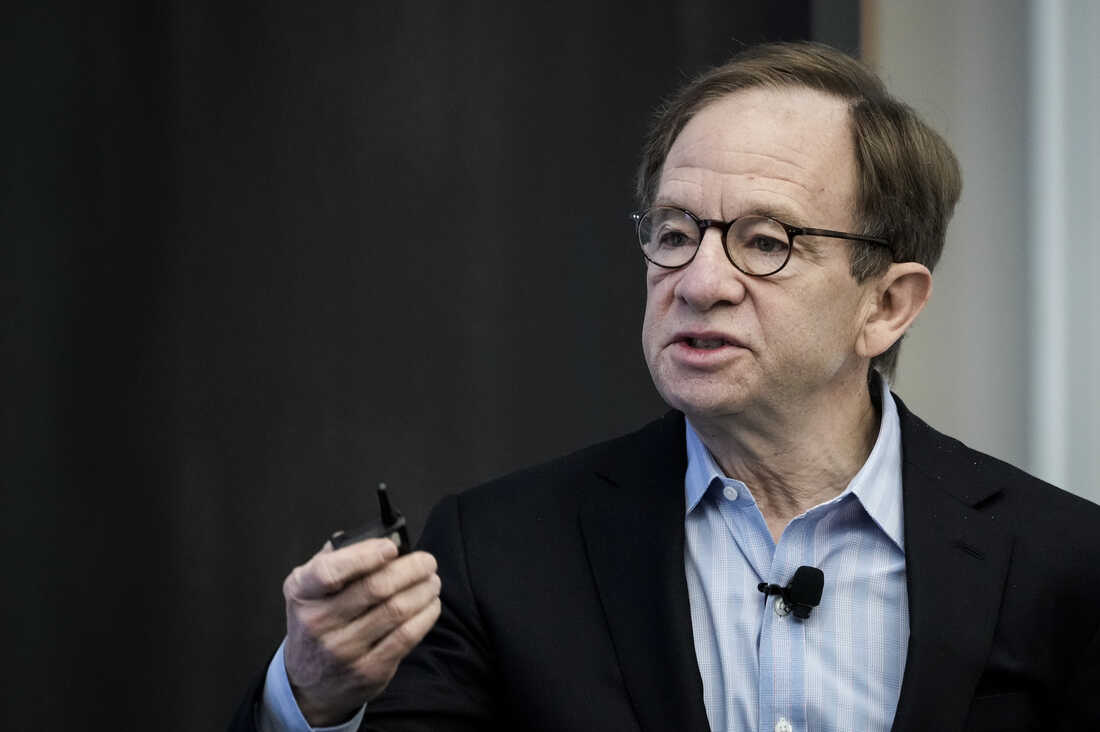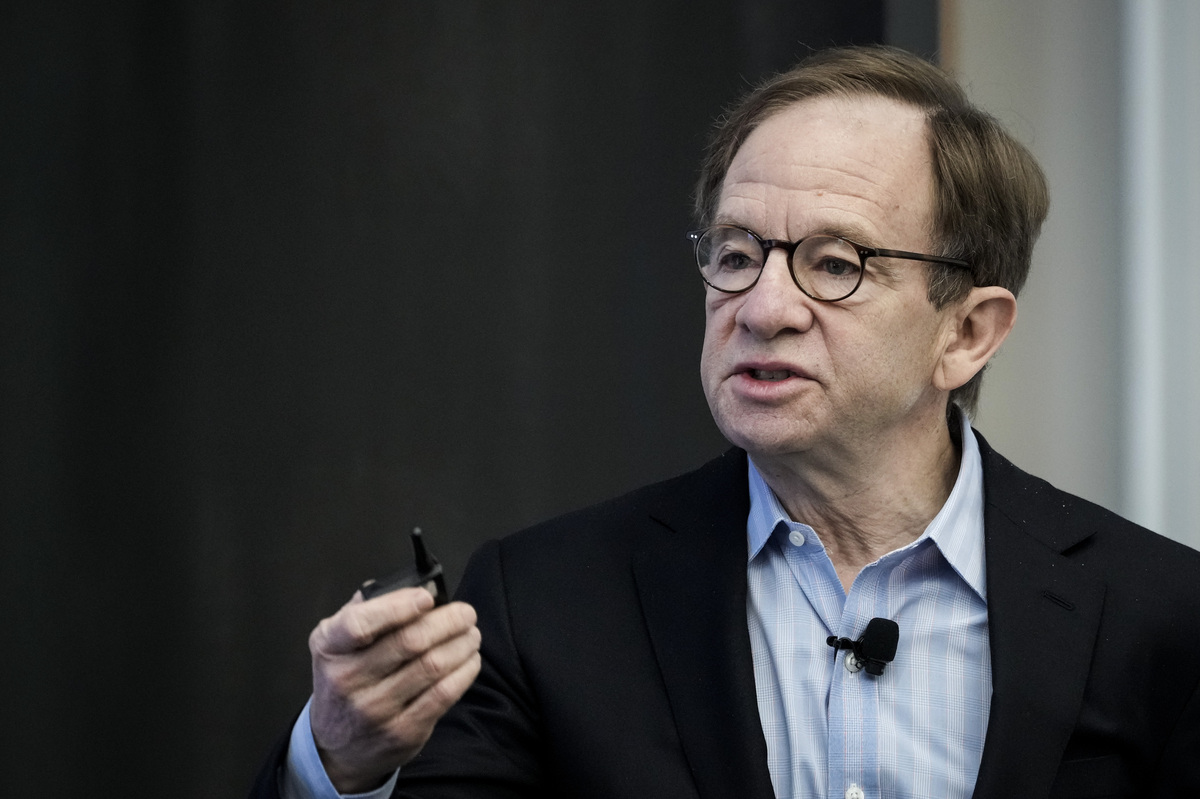
[ad_1]

Steven Rattner says the hole in pay between employees and auto executives is “unconscionable.”
Drew Angerer/Getty Images
disguise caption
toggle caption
Drew Angerer/Getty Images

Steven Rattner says the hole in pay between employees and auto executives is “unconscionable.”
Drew Angerer/Getty Images
He was the lead adviser for the Obama administration when the federal government bailed out auto firms in 2009 — following the worldwide monetary disaster. Now, he’s weighing in on the union strikes towards the large 3 American automakers.
Who is he? Steven Rattner.
- In 2009, the U.S. authorities stepped in and bailed out struggling auto firms, forcing G.M. and Chrysler to restructure.
- In that negotiation, the United Auto Workers union — the one placing now — accepted concessions to make the cash work out.
- Rattner was the lead auto advisor to the Presidential Task Force on the Auto Industry in that course of, which led to his nickname within the press because the “car czar.”
What’s the large deal?
- On Friday, the UAW expanded its strike towards the “big three” American car companies, by including two extra meeting crops, and 1000’s extra folks walked off their jobs.
- You can dive deeper into the background here.
- UAW President Shawn Fain stated: “We gave up a lot [in 2009] and the companies were in trouble, but now they’re doing incredibly well and guess what? We should be doing incredibly well too.”
- In a New York Times opinion article published Sept. 20, Rattner argued that he want to see auto employees paid extra — however that he believed the UAW was “overplaying its hand.”
Want extra on this story? Listen to the Consider This episode about President Biden on the picket line.

United Auto Workers members strike the General Motors Lansing Delta Assembly Plant on Friday in Lansing, Michigan.
Bill Pugliano/Getty Images
disguise caption
toggle caption
Bill Pugliano/Getty Images
What is Rattner’s argument?
In an interview with All Things Considered host Ailsa Chang on Friday, Rattner shared how he thinks these organizing efforts may play out.
On how this might backfire on unions:
Look, it is regular in negotiations for the social gathering that is attempting to get one thing to ask for greater than they count on to get, or may probably get. And it is equally regular for the opposite aspect of that discount to start out with comparatively low proposals and work their means up. That’s all completely regular.
The checklist of issues that the UAW has requested for transcend something that corresponds to actuality in the present day, for higher or worse. It’s unlucky in some ways, however it’s what it’s.
For instance, they’ve requested for a 32-hour week. In different phrases, to work 4 days and receives a commission for 5, having one private day per week off. They began with 40% wage will increase. I believe they’re right down to possibly round 30 or 35 in the meanwhile, and that is a good place to be bargaining.
But they’ve additionally requested, for instance, to have the previous model outlined profit pension plans — that I believe only a few employers provide to new employees anymore — restored.
They’ve requested for sure modifications that have been made, and the retiree well being care applications in the midst of all this — that once more, carry these firms extra in step with regular observe reasonably than overly beneficiant observe — they’ve requested for these to turn out to be what I’d name overly beneficiant once more.
And why he thinks these calls for are unrealistic:
Because it’s a must to put the entire thing in context. GM and Ford and Chrysler are doing fairly nicely in the meanwhile. They have money, they’ve income, they’ve the power to pay them extra, however in addition they should compete towards different firms. And within the South, you’ve gotten firms like Toyota and Honda that do not have unions in any respect.
In Mexico, you’ve gotten employees making actually $9 or $10 a day and are very productive, in response to what auto executives inform me.
And so, if the Detroit firms have an excessively excessive burden of wage prices, or fringe profit prices, then they can not compete. They lose automotive gross sales. Ultimately, the employees lose jobs and the roles transfer to those different locations.
On addressing the hole in compensation between employees and auto executives:
I assume that hole is unconscionable and it exists, however these firms will not be outliers. This is the development that we see all throughout American enterprise.
But you may slender that hole two methods. You can carry the employees up, or you may carry the CEOs down. And in impact, I’m proposing a mixture of each. It’s not a query of mixture {dollars}.
There’s no quantity of compensation in {dollars} which you could take away from these C-suite executives, and create a pool of cash that may then make a significant distinction to employees, simply given the variety of employees there are relative to the variety of CEOs and CFOs and so forth.
But I believe it is essential symbolically that there be equity right here and there is not equity in the meanwhile. I’d completely concede that.
So, what now?
- The working whole of placing UAW employees has hit about 25,000 with this enlargement on Friday.
- It comes amid different situations of labor organizing within the U.S., together with by UPS drivers, airline pilots, Vegas hospitality employees, and people within the leisure business.
Learn extra:
[adinserter block=”4″]
[ad_2]
Source link